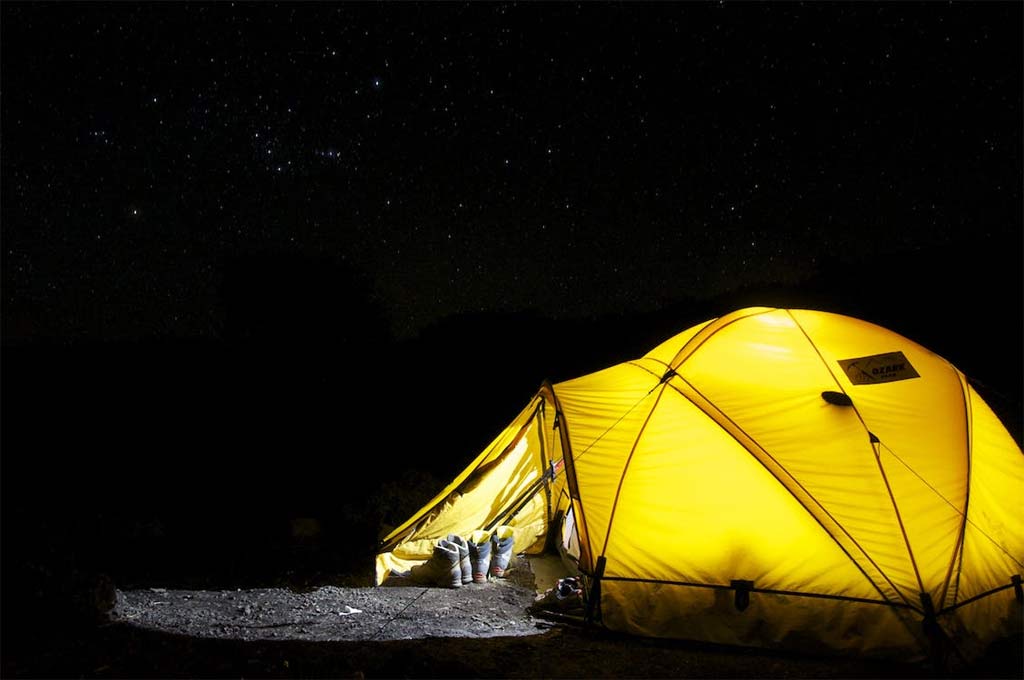Embarking on an off-grid camping journey allows for an immersive experience with the natural world, yet it also requires thoughtful preparation to ensure access to electricity for essential needs.
Whether it’s for illumination, staying connected, or powering equipment, understanding and planning for your energy requirements can significantly elevate your outdoor adventure.

Assessing Your Energy Needs
Initiating your preparations with an evaluation of your energy consumption sets the foundation for a seamless camping experience. Identify the gadgets and appliances you intend to use—ranging from mobile phones and cameras to portable coolers and lighting. The wattage of these items dictates their energy consumption, which is calculated in watt-hours (Wh) or kilowatt-hours (kWh). Summing up the energy use of your devices gives a clear estimate of your total power requirement for the duration of your trip.
Harnessing Solar Power
Solar panels are a sustainable and popular choice for generating electricity in remote locations. Their effectiveness depends on the panel’s output capacity, sunlight availability, and exposure duration. Opt for portable or foldable solar panels designed for camping, as these allow for easy transportation and setup. Positioning the panels to directly face the sun and adjusting their angle throughout the day maximizes energy absorption.
Utilizing Power Generators
For scenarios requiring more substantial power or as a contingency plan for less sunny days, power generators are invaluable. While traditional gas-powered generators provide ample energy, they do so at the expense of noise and emissions. Portable solar generators present an eco-friendly alternative, combining solar charging capability with integrated battery storage for a quieter, cleaner solution.
Storing Electricity
Effective energy storage is crucial for ensuring a consistent power supply, particularly during nighttime or overcast days. Solar generators typically incorporate lithium-ion batteries for their compact size and efficiency. For larger storage needs, consider high-capacity deep cycle batteries, designed for prolonged discharge and recharge cycles, making them ideal for sustained energy supply during your camping adventures.
Efficiently Powering Devices and Appliances
To convert stored DC power into AC power suitable for most camping electronics, a power inverter is essential. This device allows you to power AC appliances and charge various gadgets using the stored energy. Select an inverter that matches the wattage requirements of your devices and features safety protections to prevent power overloads.

Final Thoughts
Preparing for off-grid camping involves more than just packing a tent and a sleeping bag; it requires a strategic approach to meet your power needs. By accurately assessing energy requirements, harnessing solar power, utilizing generators, storing electricity effectively, and efficiently powering your devices, you can ensure a comfortable and connected outdoor experience.
This sustainable approach not only caters to your comfort and convenience but also aligns with environmental conservation efforts, allowing you to enjoy the beauty of nature while minimizing your ecological footprint.
You must be logged in to post a comment.